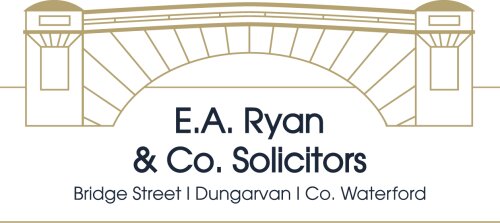Best Domestic Violence Lawyers in Ireland
Share your needs with us, get contacted by law firms.
Free. Takes 2 min.
Free Guide to Hiring a Family Lawyer
Or refine your search by selecting a city:
List of the best lawyers in Ireland
About Domestic Violence Law in Ireland
Domestic violence in Ireland is recognized as a serious issue affecting individuals irrespective of age, gender, sexual orientation, or socio-economic status. The term domestic violence typically encompasses a range of behaviors by a partner or family member that are physically, emotionally, sexually, or financially abusive. In Ireland, comprehensive legal frameworks aim to protect victims and ensure their safety. These include a variety of protective orders available to victims under the Domestic Violence Act 2018. Law enforcement agencies along with numerous support organizations work together to support victims and address perpetrators.
Why You May Need a Lawyer
Seeking legal advice can be crucial for victims of domestic violence for several reasons:
- Obtaining Protective Orders: A lawyer can assist in securing safety orders, barring orders, or protection orders from the court, which are critical for ensuring your safety and that of any children involved.
- Understanding Legal Rights: A legal advisor can explain your rights under Irish law, including your right to remain in your home and your entitlement to financial support.
- Child Custody and Protection: In cases where children are involved, a lawyer can help navigate custody arrangements and ensure the children’s safety is prioritized.
- Filing for Divorce or Separation: Victims seeking to end a relationship legally may need guidance on filing for separation or divorce and understanding the associated legal implications.
- Criminal Proceedings: If you decide to press charges, legal representation will help you navigate the criminal justice process and advocate on your behalf.
Local Laws Overview
Several laws in Ireland are designed to provide protection and support to victims of domestic violence. Key legal measures include:
- Domestic Violence Act 2018: This Act consolidates the law on domestic violence, providing for protective orders such as Safety Orders, Barring Orders, and Emergency Barring Orders. It also places obligations on the court to address the safety and welfare of victims, especially if children are involved.
- Child and Family Agency (Tusla): Tusla has a statutory duty to promote the welfare of children at risk and can become involved in domestic violence cases to ensure child protection.
- Criminal Law: Domestic violence acts can lead to criminal charges under various statutes, such as assault, harassment, or coercive control, a specific offense under the Domestic Violence Act.
Frequently Asked Questions
What is considered Domestic Violence under Irish law?
Domestic violence includes any form of physical abuse, emotional or psychological abuse, sexual violence, and economic coercion control within an intimate or family relationship.
What is a Safety Order?
A safety order is a court order prohibiting the perpetrator from further violence or threats. It does not require the perpetrator to leave the home.
What is a Barring Order?
A barring order requires the perpetrator to leave and stay away from the family home and can prevent them from coming near or watching your home.
How do I apply for a protective order?
Applications for protective orders can be made through the District Court. It is advisable to seek the assistance of a solicitor or through local legal aid services.
Can I apply for emergency protection?
Yes, an emergency barring order may be issued for up to eight days without notice to the perpetrator if there is an immediate risk of harm.
Will my immigration status be affected by seeking legal action?
Victims of domestic violence are protected under the law irrespective of their immigration status. Legal counsel can provide specific guidance based on individual circumstances.
What can I do if I fear for my safety while attending court?
The courts and law enforcement agencies have measures to ensure the safety of victims in court, including separate waiting areas and security personnel.
How does domestic violence affect child custody arrangements?
The courts prioritize the child's best interests in custody decisions, and evidence of domestic violence can significantly impact these proceedings.
Do I have to press charges if I report domestic violence to the police?
While police can investigate and gather evidence, the decision to press charges is generally a matter for the Director of Public Prosecutions. However, victim cooperation is critical.
Where can I get free or low-cost legal assistance?
Legal aid may be available for those on low incomes through the Legal Aid Board, and various charities offer free legal advice or support services to domestic violence victims.
Additional Resources
For further assistance and support, consider reaching out to the following:
- An Garda Síochána: Local police can provide immediate protection and advice.
- Tusla - Child and Family Agency: Offers services for vulnerable children and families.
- Women's Aid: Provides a national freephone helpline and various supports for women experiencing domestic violence.
- Men's Development Network: Offers support for male victims of domestic violence.
- The Legal Aid Board: Provides legal aid and advice for victims seeking legal help.
Next Steps
If you or someone you know is experiencing domestic violence and seeking legal assistance, consider the following steps:
- Contact a support agency: Reach out to organizations like Women's Aid or Men's Development Network for immediate support and advice.
- Seek legal counsel: Make contact with a solicitor experienced in domestic violence cases or the Legal Aid Board if you require financial assistance.
- Document incidents: Keep a record of any incidents, threats, or violence, as this will be crucial evidence in seeking protective orders or pursuing legal action.
- Apply for protective orders: If you are in immediate danger, seek court orders such as a safety order or barring order to protect yourself and your children.
- Consider safety planning: Develop a safety plan in conjunction with support services to prepare for any potential situations arising from the decision to leave an abusive situation.
Lawzana helps you find the best lawyers and law firms in Ireland through a curated and pre-screened list of qualified legal professionals. Our platform offers rankings and detailed profiles of attorneys and law firms, allowing you to compare based on practice areas, including Domestic Violence, experience, and client feedback.
Each profile includes a description of the firm's areas of practice, client reviews, team members and partners, year of establishment, spoken languages, office locations, contact information, social media presence, and any published articles or resources. Most firms on our platform speak English and are experienced in both local and international legal matters.
Get a quote from top-rated law firms in Ireland — quickly, securely, and without unnecessary hassle.
Disclaimer:
The information provided on this page is for general informational purposes only and does not constitute legal advice. While we strive to ensure the accuracy and relevance of the content, legal information may change over time, and interpretations of the law can vary. You should always consult with a qualified legal professional for advice specific to your situation.
We disclaim all liability for actions taken or not taken based on the content of this page. If you believe any information is incorrect or outdated, please contact us, and we will review and update it where appropriate.
Browse domestic violence law firms by city in Ireland
Refine your search by selecting a city.













